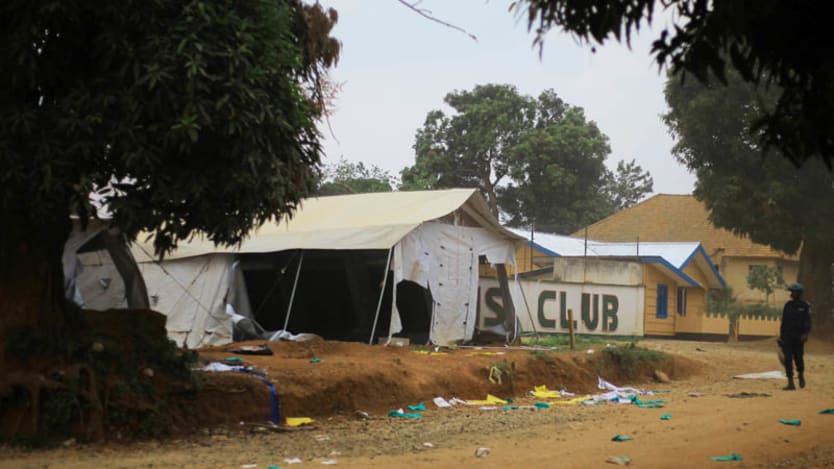
WASHINGTON — The World Health Organization’s response to the current Ebola virus outbreak in the Democratic Republic of the Congo shows how much the institution has improved in the last five years — as well as the limits of what it can reasonably be expected to do, according to the former U.S. government “Ebola czar.”
“They have been everything that they were not in 2014. They have been fast. They have been transparent. They have been candid, and they have been quite responsive. And their leadership is exceptional,” said Ron Klain, who served as the U.S. Ebola response coordinator in 2014 and 2015.
More on Ebola in DRC:
► In Ebola-hit DRC, wins and challenges of community engagement
Klain, speaking at the Pandemic and Biosecurity Forum in Washington, D.C., on Tuesday, described himself as an “unsparing” critic of WHO's response to the Ebola outbreak that struck three West African countries in 2014, but credited Director-General Tedros Adhanom Ghebreyesus with overseeing “dramatic change,” as well as efforts in DRC that are “amazing and heroic.”
Despite this progress, the current Ebola epidemic is rapidly worsening. WHO and other health workers responding to the outbreak face violent resistance from armed groups operating in eastern DRC. The number of reported Ebola cases is now over 1,500, with over 1,000 deaths so far reported. This time, WHO’s inability to stop the spread of the deadly virus is not a result of poor leadership, but due to the fact the organization was not created or equipped to mount a response effort in an active conflict zone, Klain said.
“If the biggest problems we have right now in the DRC are security, instability, the attacks on health care workers, the attacks on responders, the community resistance — and that community resistance is violent and dangerous — the WHO has no capacity to respond to that,” Klain said.
“That’s not their mandate, and they’re never going to have that capacity. We have a big debate about how [more countries should write bigger checks] to WHO, that certainly would help in the DRC, but it’s not going to solve that core problem,” he added.
Klain has argued for the creation of a “white-helmeted security battalion,” which he suggested could be led by the European Union, to provide security assistance in the event of an epidemic response.
During the 2014 and 2015 outbreak, former U.S. President Barack Obama launched Operation United Assistance, which saw 3,000 American troops from the 101st airborne division deployed to Liberia to build Ebola treatment units.
“It worked marvelously in Liberia, where American troops were welcomed as friends and as a blessing to have,” Klain said.
“That solution’s not going to work in Congo. That solution is not going to work in a lot of other places in the world. We’d have to literally fight our way in. That seems like a bad way to do an epidemic response,” he added.
The international community has dealt with issues around delivering humanitarian assistance in conflict situations for decades, if not centuries. What is new about the situation in eastern DRC is the addition of an infectious disease into that complex environment, said Andrew Natsios, director of the Scowcroft Institute of International Affairs at Texas A&M University, and a former administrator of the U.S. Agency for International Development.
“It’s happened with famines and civil wars in South Sudan, in Somalia, in Yemen. It’s been going on for 30 years. There’s a huge literature on this, but none of it deals with the complications of infectious disease,” Natsios said.
“What’s not happening is the [United Nations] is not using the emergency response functions of the rest of the U.N. system to help WHO deal with these instability issues,” Natsios added, agreeing that the EU might be a better venue for coordinating a new response security force.
“We need a different model,” Natsios said.
Search for articles
Most Read
- 1
- 2
- 3
- 4
- 5






